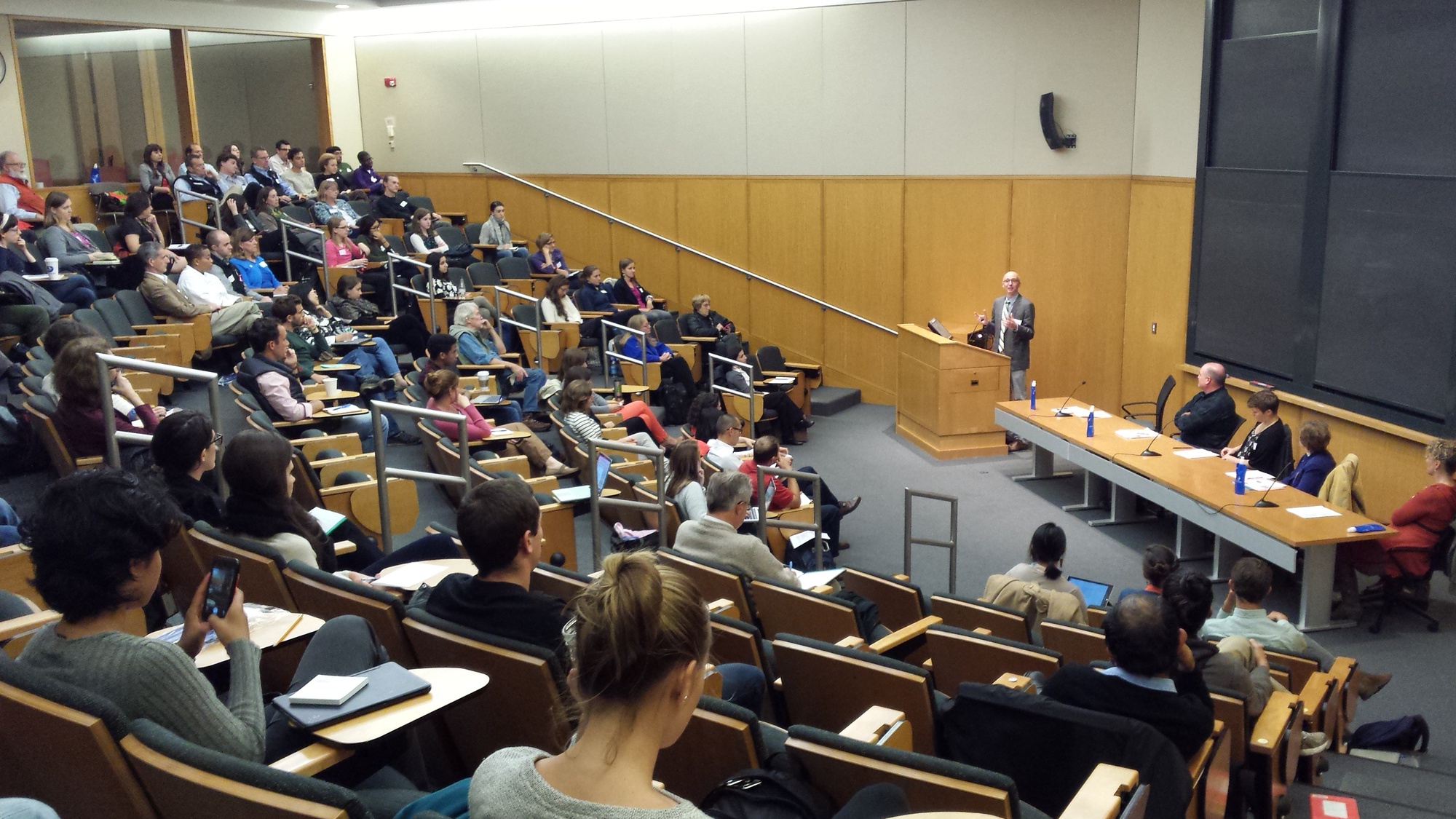
News
When Professors Speak Out, Some Students Stay Quiet. Can Harvard Keep Everyone Talking?

News
Allston Residents, Elected Officials Ask for More Benefits from Harvard’s 10-Year Plan

News
Nobel Laureate Claudia Goldin Warns of Federal Data Misuse at IOP Forum

News
Woman Rescued from Freezing Charles River, Transported to Hospital with Serious Injuries

News
Harvard Researchers Develop New Technology to Map Neural Connections
'Food Better' Addresses Farmer, Buyer Disconnect

UPDATED: October 6, 2014, at 5:40 p.m.
Harvard can take steps to reverse the growing separation between people and the farms that produce their food, panelists said at the Food Better Symposium on Friday.
“We have lost sight of nature. We have literally lost sight of things that fundamentally determine our health,” said moderator Aaron S. Bernstein, an associate and program director at the Harvard Center for Health and the Global Environment. “We have a system that brings this essential thing to us, and we don’t really understand how it gets there.”

The Food Better campaign—a partnership between Harvard University Dining Services, the Harvard Office for Sustainability, and the Harvard Food Law and Policy Clinic—aims to bridge this disconnect over the course of the year by fostering conversations about food literacy. The campaign launched Monday with a presentation at the Harvard Community Garden.
Friday’s panel, which was held in a packed Tsai Auditorium in CGIS South, brought academics, agriculturists, and activists together to discuss their visions for the future of the food system.
Panelist Jim Ward, owner of Ward’s Berry Farm, said that society’s evolution away from small-scale agriculture has deepened the disconnect between farmers and shoppers.
Some activists are trying to bring producers and consumers back together. Panelist Mary Alice Reilly, for example, is a coordinator at World PEAS Food Hub, an organization that supports small farmers and provides locally grown produce to low-income citizens.
Panelists said that Harvard also takes steps to bring food to low-income residents of Boston. According to Sasha Purpura, another panelist and operations director of the nonprofit Food for Free, 40 percent of food produced in America goes uneaten. Food for Free works to bring leftover food from university dining halls to food pantries, shelters, and meal programs, and in the last week alone, the organization donated 3,100 pounds of food from Harvard’s dining halls.
“In this wealthy city of Cambridge, 42 percent of schoolchildren—almost half of the schoolchildren in Cambridge—qualify for free and reduced meals. I don’t know if everybody recognizes how much hunger and poverty exists in this city,” Worrall said.
For the next stage of the Food Better campaign, teams from across the University will compete in the Deans’ Food System Challenge, which begins on Oct. 27. The Challenge, hosted by the Harvard Innovation Lab, asks its participants to find creative solutions to food justice problems in four topic areas, including food waste reduction and food distribution.
“Food is perhaps the most powerful vehicle we can use to bridge our disconnect with food,” Bernstein said. “Everyone ate today. And through that experience, we are confronted with all the things that Food Better is dealing with. We’re confronted with the waste; we’re confronted with the production issue; we’re confronted with the nutrition issue; we’re confronted with the distribution issue. All of that becomes a part of our conversation.”
This article has been revised to reflect the following correction:
CORRECTION: October 6, 2014
An earlier version of this article incorrectly identified the operations director of the nonprofit Food for Free, who spoke on Friday's panel. In fact, Sasha Purpura directs the nonprofit.
Want to keep up with breaking news? Subscribe to our email newsletter.
